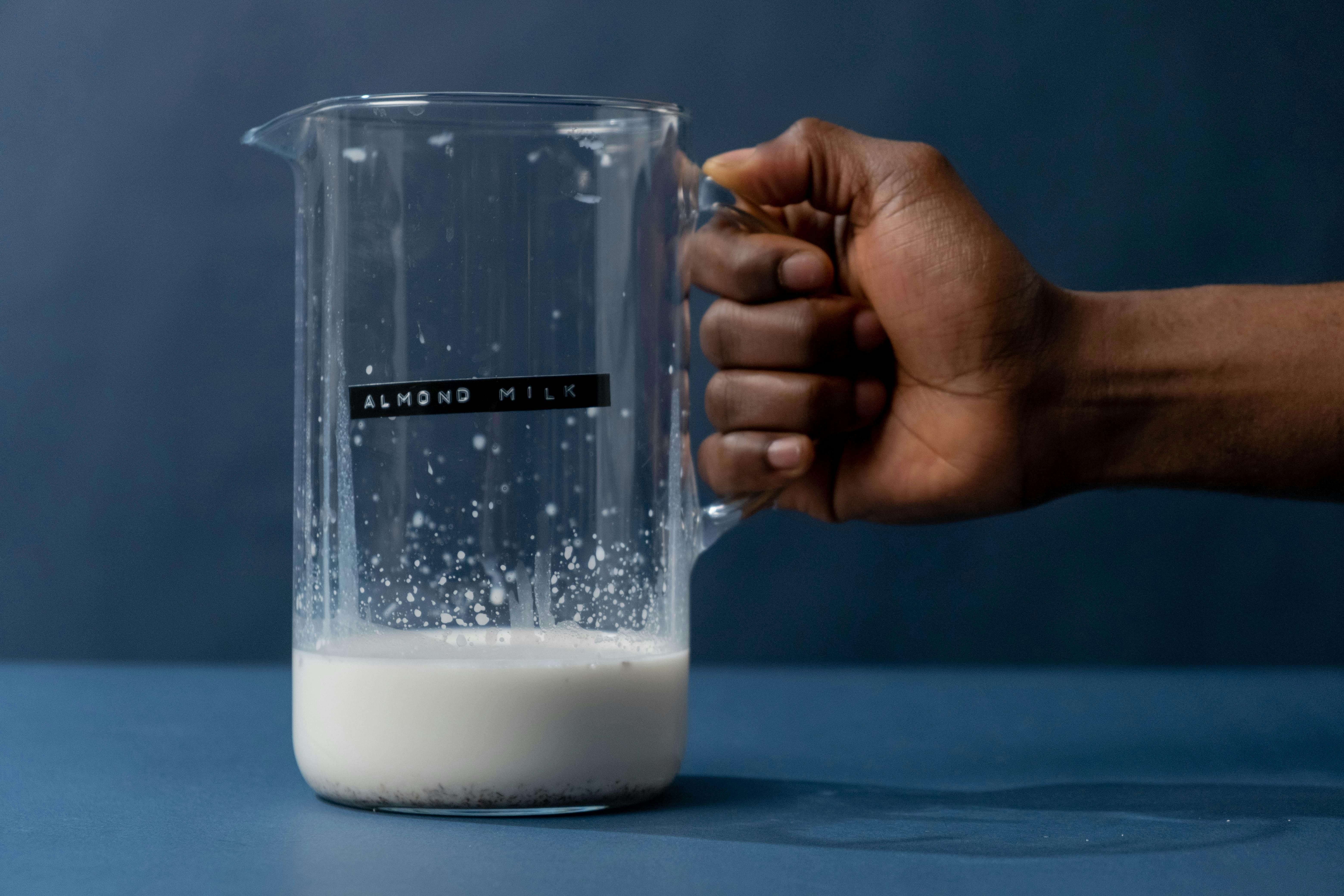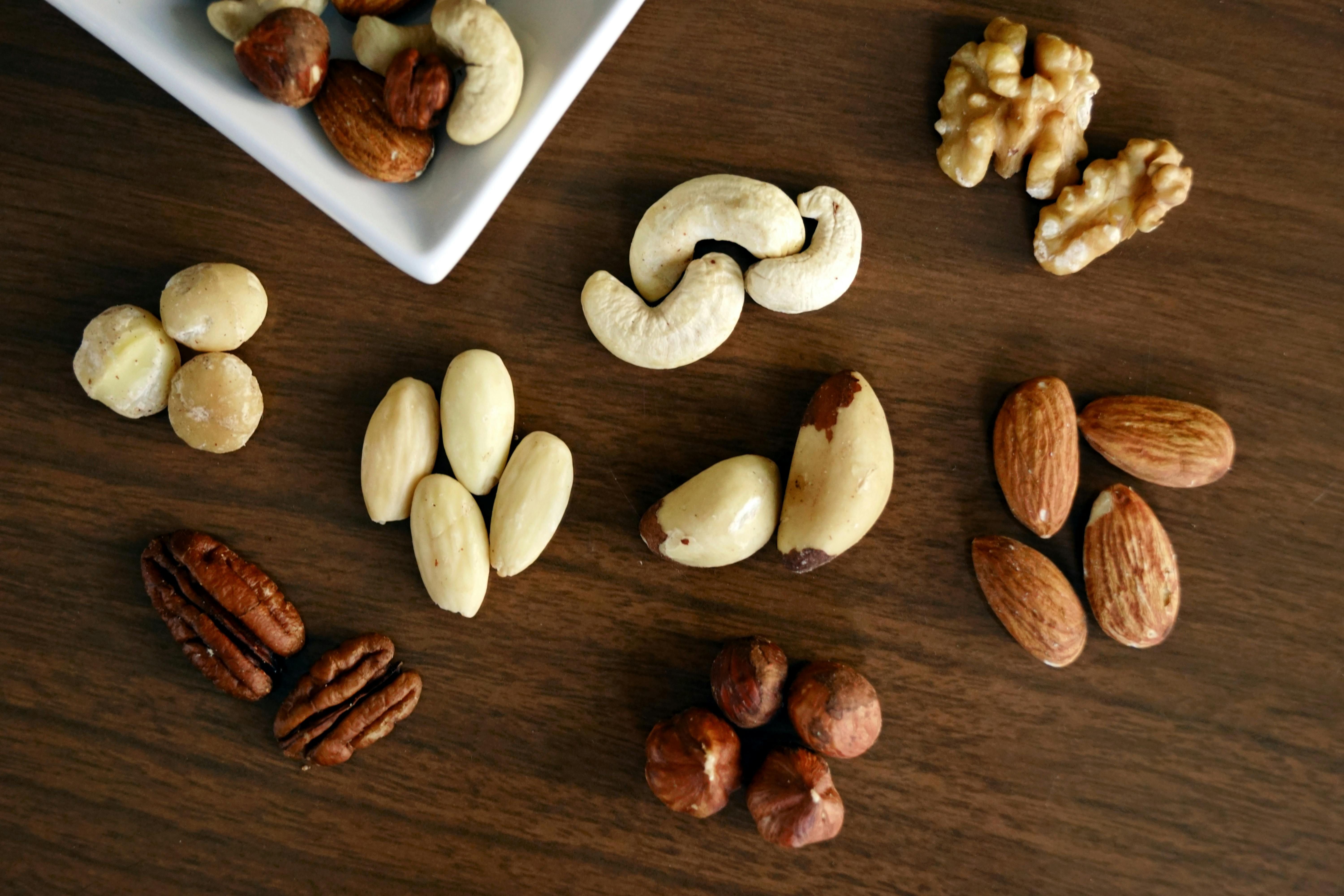
Stevia and Intermittent Fasting: Does It Break Your Fast?
Have you ever been halfway through your intermittent fasting routine, eyeing that sweet little packet of stevia, and thought, "Will this break my fast...

Hey there, fasting femmes! If you’re reading this, chances are you’ve jumped on the intermittent fasting bandwagon. And why not? Studies show it can lead to weight loss of 7-11 pounds over 10 weeks, improved insulin sensitivity, and reduced inflammation.
But as with any lifestyle change, there are rules to follow – and when it comes to fasting, knowing which foods and drinks can break your fast is crucial. Enter almond milk, the vegan’s best friend and a staple in 63% of plant-based households. But does this nutty beverage get a green light during your fasting windows? Let’s dive in and find out!
Okay, let’s start with the basics. Intermittent fasting is like a game of calorie tetris – you have designated times when you can eat, and times when you can’t. The most popular method is the 16/8, where you fast for 16 hours (say, 8 pm to 12 pm the next day) and have an 8-hour eating window. There’s also the 5:2, where you eat normally for 5 days and restrict calories to 500-600 for 2 non-consecutive days. And let’s not forget the “eat-stop-eat” approach, with one or two 24-hour fasts per week.
Now, what does it mean to “break a fast”? Well, it’s not just about avoiding solid foods. Anything that causes a significant insulin spike (generally over 10-15 grams of carbs from sugars or refined carbs) or stops processes like autophagy can technically break your fast. So, while water, unsweetened black coffee, and plain teas generally get a pass, most other beverages and foods are off-limits.

Almond milk is the cool kid at the non-dairy milk party. It’s low in calories (usually 30-60 per cup), packs a decent amount of vitamin E (49% of the RDI in just 1 cup) and minerals like calcium and iron. Plus, it’s free from pesky lactose and animal products – making it a popular choice for the estimated 65% of the human population with some degree of lactose intolerance.
But let’s be real – almond milk isn’t a perfect substitute for cow’s milk. It’s lower in protein (just 1-2 grams per cup compared to 8g in cow’s milk) and can lack that creamy mouthfeel dairy lovers crave. Still, for the growing plant-based community (which tripled between 2004 and 2019), almond milk is a solid choice.
Now, the million-dollar question: does almond milk break a fast? The short answer is… it depends.
Unsweetened almond milk is relatively low in calories (30-50) and carbs (1-2g) per cup, so in small amounts, it’s unlikely to spike your insulin levels significantly or kick you out of a fasted state. However, studies show that over 50 calories of fats, proteins or carbs can start impacting autophagy. And if you start chugging almond milk like it’s going out of style, you may run into some issues.
The key is moderation. A splash (2-4 tablespoons) of unsweetened almond milk in your coffee or tea during your fasting window is generally considered okay by most experts. But if you’re downing a whole glass (8oz) or adding sweetened versions, you’re likely providing enough calories, carbs, and sugars to break your fast.

For us ladies, there are a few extra things to consider when it comes to fasting and almond milk.
First, let’s talk hormones. Some studies suggest that fasting can help regulate menstrual cycles and alleviate symptoms like cramps and PMS for up to 60% of women. However, other research shows that overly restrictive diets may negatively impact hormone levels. If you’re struggling with hormonal imbalances, it’s worth monitoring how your body responds.
Bone health is another crucial factor, especially as women approach menopause (when risk of osteoporosis rises). Since almond milk is low in calcium and vitamin D (unless fortified), having a small amount during fasts is likely okay, but you’ll want to focus on other calcium-rich foods or supplements.
And let’s be real – sometimes, we just need a little extra comfort during “that time of the month.” If a warm mug of almond milk is your go-to period craving-buster or tummy soother, it’s probably better to indulge in moderation than risk derailing your fasting efforts completely.
So, you’ve decided to embrace the almond milk life during your fasting windows. Here are some tips to help you do it right:
A: In moderation (2-4 tbsp), yes! Just stick to small amounts of plain, unsweetened almond milk.
A: It’s hard to put an exact number on it, but many experts recommend limiting yourself to under 50 calories during a fast to avoid impacting autophagy. For most unsweetened almond milks, that’s around 4-6oz max.
A: Most likely, yes. Sweetened and flavored varieties can pack up to 16-22g of sugar per serving, which will definitely spike insulin and break a fast.
There you have it, folks – the lowdown on almond milk and intermittent fasting. While a moderate amount of unsweetened almond milk is considered fasting-friendly by many, it’s still important to listen to your body and adjust as needed.
Remember, fasting is a journey, and there’s no one-size-fits-all approach. So experiment, track how you feel, and don’t be afraid to switch things up.

Have you ever been halfway through your intermittent fasting routine, eyeing that sweet little packet of stevia, and thought, "Will this break my fast...

Fasting has gained immense popularity in recent years, with an estimated 25-30% of Americans practicing some form of intermittent fasting as of 2023. ...

If you're like me, you may have jumped on the intermittent fasting bandwagon in hopes of shedding some stubborn pounds, boosting your energy levels, o...

It's no secret that intermittent fasting has taken the health and wellness world by storm, especially among women seeking to shed those stubborn pound...

Today, we're diving into the intricate world of intermittent fasting (IF)—a journey that promises not just weight loss but a bounty of health benefits...